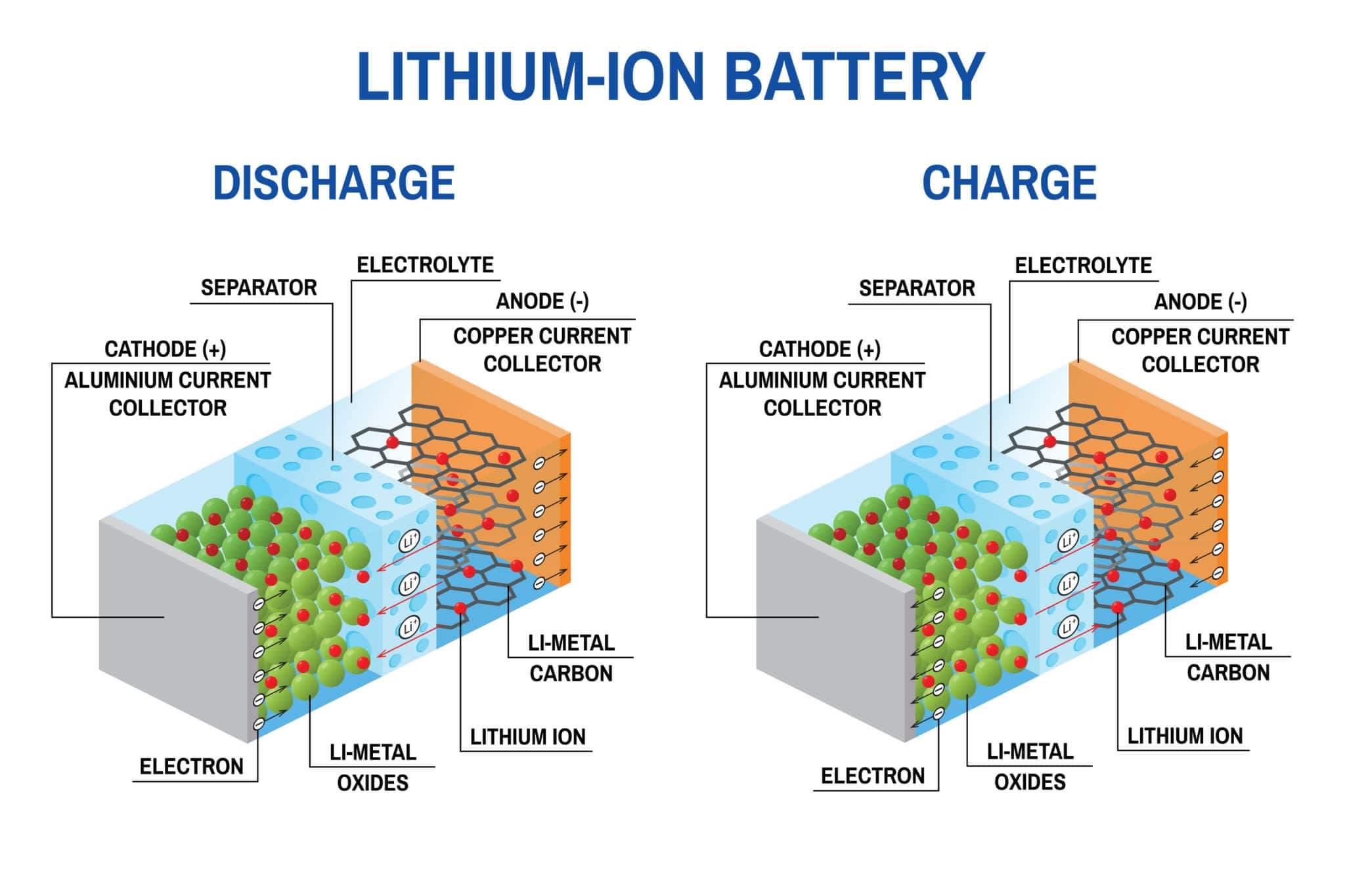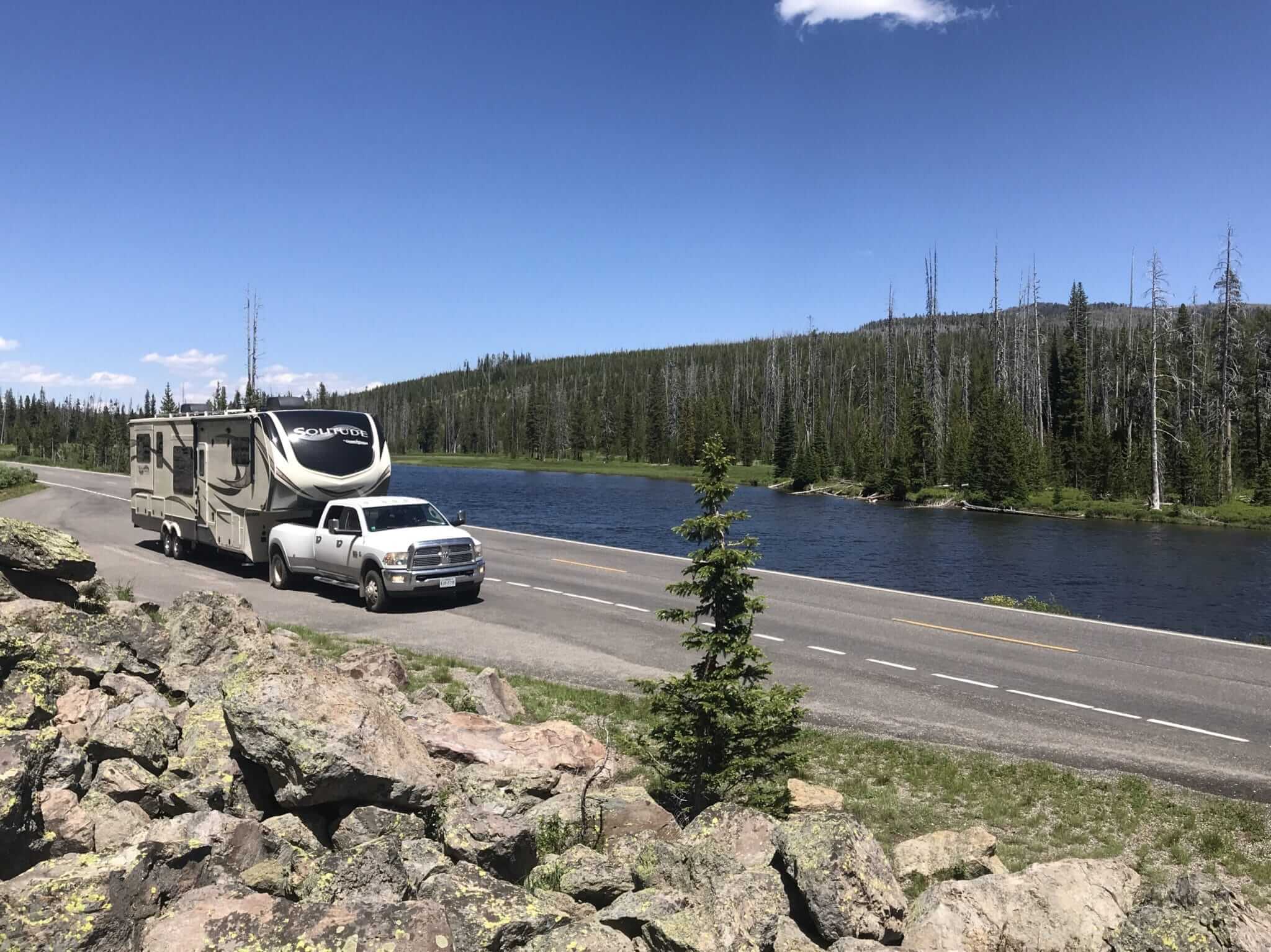Table of Contents Show
LiFePO4 batteries have a lengthy list of benefits that make them the best choice for an RV and many other battery bank applications. Ease of use. Safety. More power!
What else could you want out of your RV batteries? Check out our list of the best RV batteries for the pros and cons. While traditional lead-acid batteries aren’t necessarily known for such things, LiFePO4 batteries are. In fact, they are known for a whole lot more. So let’s dive into why LiFePO4 batteries are your best option.
What is LiFePO4?
LiFePO4 is a newer form of lithium-ion battery solution. This lithium iron phosphate-based solution is inherently non-combustible and allows for a lower energy density, making it a good choice for applications such as an RV battery bank.
How Safe is LiFePO4?
One of the main advantages of LiFePO4 batteries is the safety factor (but it’s still good to have an emergency kit). As mentioned, the solution used to create LiFePO4 batteries is inherently non-combustible, which differentiates them from batteries based on previous lithium-ion technologies that garnered a reputation for having caught fire.
LiFePO4 batteries can also withstand extreme conditions such as freezing cold, intense heat and bouncing along rough terrain. Yes, that means they are boondocking friendly!
Long Lifespan
The lifespan of LiFePO4 batteries is another huge advantage, especially compared to their traditional lead-acid battery counterparts. LiFePO4 batteries typically last upwards of 5,000 cycles at 80-percent discharge. While lead-acid batteries may only last a few hundred cycles at just 50-percent discharge.
In real-world terms, this basically means a LiFePO4 battery will last you around 10 times longer than a lead-acid battery. It will also last about twice as long as most other lithium ion batteries based on different technologies.
No Active Maintenance
Another enticing factor when considering a LiFePO4 battery is that it requires no active maintenance to extend its lifespan. Even a sealed lead-acid battery requires careful monitoring of depth of discharge to try and maximize its lifespan.
Nearly all consumer-ready LiFePO4 batteries come with an integrated Battery Management System (BMS), which maximizes its efficiency and lifespan without you having to lift a finger.
LiFePO4 Batteries are Lightweight
Because these batteries have a higher power density than lead-acid batteries, they can be contained in a smaller, lighter weight product. This is especially beneficial in an RV, where weight is an important consideration for almost any component.
High Efficiency

LiFePO4 batteries are highly efficient. You can use most of the battery’s capacity without lowering its lifespan or capacity. Lead-acid batteries are typically only able to use about 50-percent of the battery’s capacity before irreversible damage takes place, lowering the battery’s overall capacity.
A LiFePO4 battery also charges much faster than a lead-acid battery.
Being able to use the full capacity of these batteries means you’ll be able to utilize more of their power.
A faster charge time means less time running your generator or less time searching for the sun for your solar panels.
High Discharge Rate
Since a LiFePO4 battery has a high discharge rate, you have more power available to do things like start an engine or run several electrical appliances simultaneously.
This also means that you can run high energy appliances like a microwave or air conditioning unit from LiFePO4 batteries; something which is difficult, if not impossible, with lead-acid batteries.
LiFePO4 batteries are obviously the best choice for an RV
Battle Born Batteries offers a full line of lithium-ion batteries. Whether you simply want a drop-in replacement for your current battery or want a reliable off-grid system for some serious boondocking, they have you covered. We've used and abused our Battle Born Batteries for years and can confidently say lead is dead.
As you can see, LiFePO4 batteries have a lengthy list of benefits that make them the best option for your RV. Whether you want to go boondocking or simply take advantage of a wider array of campgrounds than always having to have full hook-ups and still be comfortable, these batteries have got you covered.
You get a long lifespan that actually reduces overall cost, ease of use, more power available for a longer period of time, and quicker recharging. You can even power those big behemoth appliances that used to only be available via shore power.
Looking to up your RV battery game? LiFePO4 is your best option. We love and highly recommend our Battle Born Batteries.








Although not a “full timer” we do go out every month for 3-5 days and a “snow bird” trip for 6-8 weeks. We do ~70% dry camping / boon-docking. About 4+ years ago I studied up on solar & lithium setups until I had paralysis by analysis. I decided to just jump in very small with a single 100W glass panel to just charge my 2-6v golf cart batteries. I added a small inverter generator soon after, as I discovered unless the panel is in direct sun or you’re not constantly moving the panel you’re not getting a lot of charging. We camp a lot in wooded area’s as well. We have since added a second panel and a very small (400 Watt converter) . In 3+ years i doubt I’ve burned 5 gallons of gas. My Costco 6 volt batteries ran me ~$180 and should last another couple of years. I can then spend ~$200 -$225 for another set for 5 more years. I have never had my batteries below 65% soc. So for me and many other weekend warriors spending ~$1000 for a battery doesn’t make economic sense. I fully agree they are a better chemistry, charge quicker, can run them down further …. My guess is they’ll be replaced by yet another chemistry within the next few years t something bigger & better.
I really think that lithium batteries sound like a great idea but not on my budget. I have three house batteries in my 38 foot 2005 Georgie Boy Cruise Aire XL that need to be replaced. I plan on expanding to six batteries. I’m working on gradually adding more Items like solar panels, about ten or twelve, and possibly a larger inverter if needed. I don’t know much about it but I’ll do my best to figure it out.
Jimi
I’m pretty confused about your article! You wrote very convincingly about the LiFePo4. In the very next paragraph you are talking about a Battle Born battery with equally convincing passion. I am totally confused. Are they the same thing? Is Battle Born just the name of the company that sells the LiFePo4? They can’t be different batteries because you are saying they are both the only great solution for a battery. Can you clear this up?
LiFePO4 is a type of lithium battery chemistry while Battle Born are my favorite manufacturer of LiFePO4 batteries.